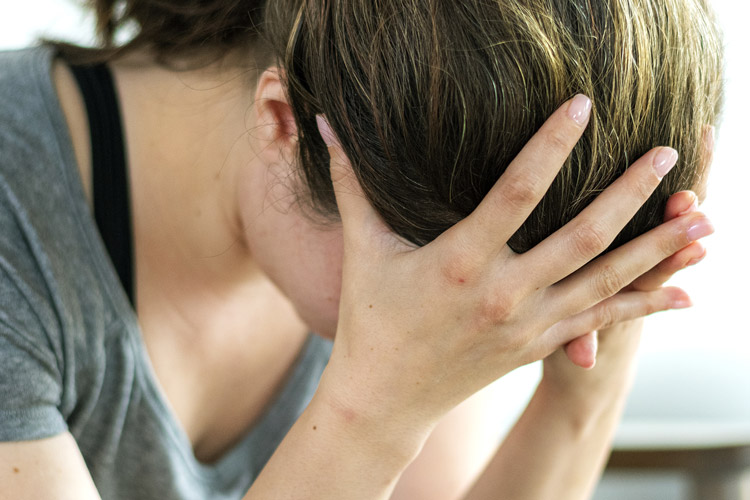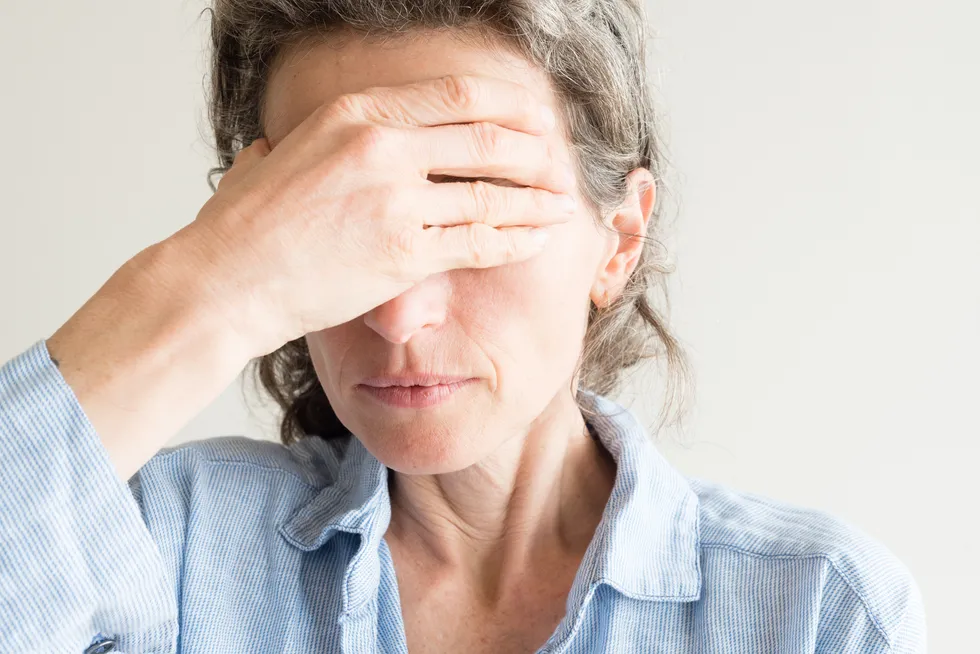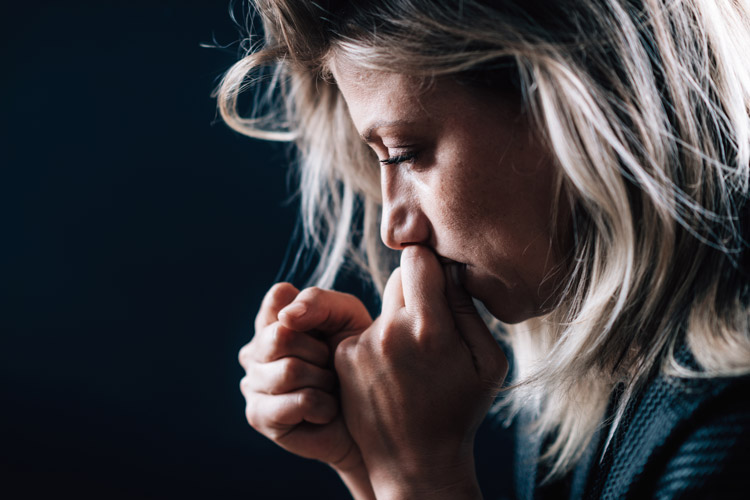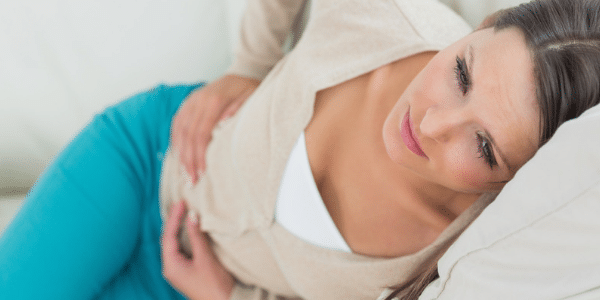Menopause anxiety is a common experience for many women undergoing the hormonal shifts of menopause. This type of anxiety can vary widely in duration, influenced by factors like individual health, lifestyle, and stress levels. While some may experience brief periods of anxiety, others might find it persists longer. In this post, we will share the duration of menopause anxiety, its triggers, and effective strategies for management, offering insights into how women can navigate this challenging time with greater ease and comfort.

Contents
How Long Does Menopause Anxiety Last?
The duration of menopause anxiety can vary significantly from one person to another. For some women, anxiety linked to menopause may last only a few months, while for others, it might persist for several years. Typically, the most intense symptoms occur during the perimenopausal period—the stage leading up to menopause when hormonal fluctuations are most pronounced.
Factors that can influence the duration and severity of menopause anxiety include individual hormonal changes, overall health, lifestyle factors, and how one manages stress. Effective management through strategies such as therapy, medication, lifestyle adjustments, and support groups can help alleviate the symptoms and reduce the duration of anxiety experienced during menopause.
Why Does Menopause Cause Anxiety?
Menopause can cause anxiety due to a combination of hormonal changes, physical symptoms, and emotional adjustments. Here’s a closer look at the main factors:

1. Hormonal Changes
The most significant factor is the fluctuation in hormones, particularly estrogen and progesterone, which can affect mood and anxiety levels. Estrogen has a modulating effect on brain chemicals like serotonin and dopamine, which are linked to mood regulation. As estrogen levels decline during menopause, this can lead to increased feelings of anxiety.
2. Physical Symptoms
Menopausal symptoms such as hot flashes, night sweats, and irregular periods can be stressful and disrupt sleep, which in turn can increase anxiety. Chronic sleep deprivation is known to exacerbate anxiety.
3. Life Stressors
The age at which menopause occurs often coincides with other significant life changes and stressors, such as aging, health concerns, the care of elderly parents, or changes in family dynamics. These stressors can contribute to feelings of anxiety.
4. Psychological Impact
The end of reproductive years can also have a psychological impact, as it might affect a woman’s view of her personal identity or cause feelings of loss. This psychological shift can trigger anxiety.
How Do You Manage Menopausal Anxiety?
Managing menopausal anxiety effectively involves a combination of lifestyle adjustments, medical interventions, and psychological support. Here are several strategies that can help:

1. Lifestyle Changes
- Regular Exercise: Engaging in regular physical activity can significantly reduce anxiety. Activities like yoga, swimming, or even daily walks can help regulate mood.
- Balanced Diet: Eating a healthy diet rich in fruits, vegetables, and whole grains can stabilize blood sugar levels and support overall mood.
- Adequate Sleep: Ensuring enough quality sleep each night is crucial. Establish a regular bedtime routine and create a comfortable sleep environment.
- Mindfulness and Relaxation Techniques: Practices such as meditation, deep breathing exercises, and mindfulness can decrease stress and anxiety levels.
2. Medical Treatments
- Hormone Replacement Therapy (HRT): For some women, HRT can help balance hormone levels and alleviate menopausal symptoms, including anxiety. However, it’s important to discuss the benefits and risks with a healthcare provider.
- Medications: Anti-anxiety medications or antidepressants may be prescribed to help manage severe anxiety symptoms. Always consult with a healthcare professional for appropriate diagnosis and treatment.
3. Psychological Support
- Counseling or Therapy: Talking therapies like cognitive behavioral therapy (CBT) can be highly effective in managing anxiety by addressing negative thought patterns and behaviors.
- Support Groups: Joining menopause or mental health support groups can provide emotional support and coping strategies shared by others going through similar experiences.

4. Alternative Therapies
- Acupuncture and Herbal Remedies: Some women find relief in alternative treatments like acupuncture or certain herbal supplements. However, it’s crucial to consult with a healthcare provider before starting any new treatment to ensure safety and suitability.
Frequently Asked Questions
What helps to alleviate menopause symptoms?
Adopting a balanced diet and consistent exercise routine can aid in managing menopause symptoms. Cognitive behavioral therapy (CBT) is also effective in dealing with anxiety and mood swings linked to menopause.
How is anxiety stemming from menopause treated?
Treatments for menopause-induced anxiety can include hormone therapy, antidepressants, psychotherapy, or mood-enhancing supplements. Cognitive-behavior therapy (CBT) has been found to be an effective treatment for managing menopause-related anxiety.
What medications are used for hormone-induced anxiety?
Antidepressants, specifically Selective serotonin reuptake inhibitors (SSRIs) like fluoxetine (Prozac), paroxetine (Paxil, Pexeva), and sertraline (Zoloft) are commonly prescribed for hormone-induced anxiety due to their efficacy in alleviating mood symptoms.
What are some unusual sensations during menopause?
Unconventional sensations during menopause can include paraesthesia (electric shock feelings, nerve pain, pins & needles, and tingling in your extremities), predominantly affecting the feet, legs, arms, and hands.
The manifestations of menopausal anxiety can closely resemble typical anxiety symptoms, including heart palpitations, shortness of breath, and chest pain, similar to the sensations experienced during a panic attack.
I am a medical student with experience and interest in Women’s health and well-being.